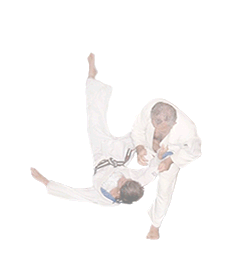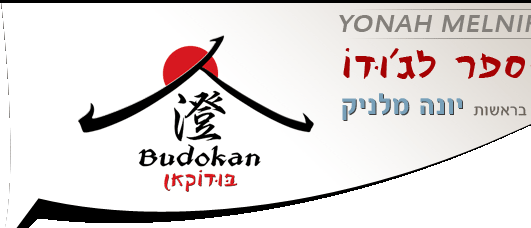



|
| Why Judo? / Judo for Kids -
A guide for the perplexed parent By: Sensei Yonah Melnik As parents we have to meet the need to help our kids to select for themselves some kind of physical activity. Each year, the range of choice gets bigger and it becomes more difficult. We asked Mr. Yonah Melnik, 6th. Dan National Judo Coach and experienced teacher, to give us some understanding andguidance in this task. 1. Physical activity is very meaningful for small kids to their physical, social and emotional development. Thus it must be of kind that will motivate the child to continue and not give up. It must be fun for him and enjoyable, and it must fit his age and developmental phase. 2. The early years of children are characterized by rapid evolution, maturation and changes in the musculo-skeletal system, and above all, of the central nervous system. Physical activity should fit the normal process of development and follow it and we should not try, under no circumstances, to influence this normal process towards any direction, artificially. 3. During early childhood we should lay the ground for the various components of the child's physical ability. The focus should be on movement ability, agility, coordination and flexibility. Those are very important for all daily activities, and for all others components of physical fitness. In early age we should also start to develop speed and first steps in strength. We should be very cautious with the strength component, to not disrupt the normal developmentalequilibrium. Until 10 -11 years of age kids don't have thephysiological systems needed for it. 4. The work should be directed towards general abilities, whatever sport the child will choose. We will not try to develop specific abilities to certain kind of sport in early childhood. We should not look for kids to be "specialist" in any sport, this will be intervening in the normal developmental process. It's right to "use" the specificity of a sport as long as we can put it in service of general abilities. For example: in judo we use the playing, fighting and rolling together on the mat to develop equilibrium, spatial orientation and awareness, agility and responsiveness, flexibility and basic strength. Other sports also find their ways to the same goals. In any case, during childhood, the ratio of general abilities / specific abilities will always be in favor of the general ones. This ratio will be reversed very gradually during the years into adulthood. 5. Thus we should understand that specific achievements in sport are by no means a goal in childhood. The wish to gain specific accomplishment, by competition for example, may lead to neglecting the basic needs and be harmful. We should never try to look for "champions" among kids. Our experience clearly demonstrates that too young champions also stop to be champions very early and even quit sport activity early in their life, sometimes with non reversible injuries and illness and theyloose a very important activity for their adult life. As conclusion, my main message for you, parents is: never forget that The prime purpose of physical activity in childhood is developmental in all fields, health and fun. Competitive success is by no means a goal. It is important for all kids, gifted or not. Those kids who are more gifted will be able to continue and specialize in a specific sport later, on the basis of general abilities we helped them to develop earlier. So we should focus on developing a wide basis of techniques and skills, a wide range of movement vocabulary, and certainly not on those skills that are aimed to competition. The time for this will come later, and trying to hurry will only do harm.
|






